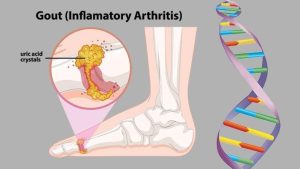The high incidence of cardiovascular diseases during seasonal changes and frequent cold air activities is mainly related to four factors: low temperature, little exercise, eating too much and frequent infections.
When the weather is cold, the body’s capillaries contract, the heart rate accelerates, and blood pressure rises, leading to increased work pressure on the heart, which in turn induces angina pectoris or myocardial infarction. Elderly people with poor physical condition are often combined with colds, flu and other respiratory diseases when the temperature drops, which can also easily induce acute myocardial infarction and sudden death.
It can be seen, temperature changes, especially cold stimulation, can lead to increased blood pressure, and trigger a variety of cardiovascular diseases or make the original disease acute aggravation.
Cardiovascular disease patients How to deal with the test of cold?
Cardiovascular disease patients should pay attention to the following five aspects.
First, according to the temperature and self-feeling appropriate increase or decrease clothing. When the season changes, you may want to go out with an extra jacket.
Second, the diet should not be too nourishing. For patients with cardiovascular disease, high salt, high fat diet is tantamount to disease progression “gas pedal”. In the diet, patients should do meat and vegetables, low-salt, low-fat diet is appropriate.
Third, moderate exercise. Moderate exercise can promote blood circulation. When the seasons change, patients with cardiovascular disease should not stop exercising. Even if you don’t go out at home, people should minimize sedentary activities. Exercise should be done according to one’s ability, and avoid outdoor exercise in the early morning, at night when the vision is not clear or in hazy weather.
Fourth, timely vaccination against influenza. It is recommended that patients with cardiovascular disease receive influenza vaccination every year to avoid severe influenza and the cardiovascular events it causes.
Fifth, strengthen disease self-management. Cardiovascular disease is a chronic disease, the patient’s self-management is to maintain the stability of the condition of the “magic weapon”. Patients should do a good job of monitoring indicators, such as self-measurement of blood pressure, blood glucose, heart failure patients should also monitor weight, fluid intake and output. Patients should follow the doctor’s instructions to take medication on time, do not increase or decrease the dose and stop taking medication without authorization; adhere to a healthy lifestyle; go to the hospital regularly for follow-up; and consult the doctor in time when symptoms occur.
What are the exercise principles for patients with cardiovascular disease?
The principle of “life lies in exercise” also applies to patients with cardiovascular diseases. Patients with cardiovascular disease should keep on exercising, at least 150 minutes of moderate-intensity exercise or 75 minutes of high-intensity exercise per week.
Here’s a simple way to tell: with moderate-intensity exercise, our heart rate and respiratory rate increase, but we can still have a normal conversation; with high-intensity exercise, we can’t have a normal conversation.
During the cold season, the recommended exercise programs include jogging, hiking, brisk walking and ball games. However, patients should dress appropriately when going out for exercise, warm up sufficiently before exercise, hydrate in time during exercise, and avoid excessive exercise.
What should hypertensive patients pay attention to in terms of diet?
In terms of daily diet, hypertensive patients should pay attention to potassium supplement and sodium reduction. Sodium will raise blood pressure. It is recommended that hypertensive patients reduce sodium intake to no more than 5 grams of salt per person per day. Eat more potassium-rich foods, such as millet, wheat, spinach and bananas. Stay away from high-fat and high-sugar foods, eat less cold and spicy foods, and consume more fresh vegetables, fruits and whole grains.


